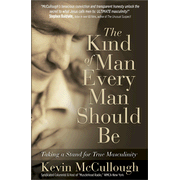Tuesday, September 30th, 2008 at 12:30 pm
As my wife and I talked about the bailout failure, she wondered if there would be the catastrophe that pundits were predicting would come about. I mean, some were giving the impression that the next day we’d be in The Great Depression 2.0. The Dow Jones drop yesterday was a large absolute number, but it was just a little over 6%; less than a third of the percentage drop in ’86. And over the past week the market has taken wide swings as emotion rather than reason has put it on the roller coaster.
But as the Hitchhiker’s Guide to the Galaxy reminds us; don’t panic.
There are two reasons not to panic. The first is that God is still in control, He knows what’s coming, and if we’re trusting in Him we don’t have to worry. “And we know that in all things God works for the good of those who love him, who have been called according to his purpose.” (Romans 8:28) Those “all things” may not all be pleasant and cheerful, but they’ll all work for good. Likewise, this doesn’t mean we don’t have plans if disaster strikes — I have a savings account, a retirement account, and I backup my computer; this verse doesn’t tell us not to be careful — but whatever events come our way we need to trust Him to get us through it. Panic, as human and as understandable as it may be, is a lack of trust. A good article, “Fearing the Future”, is here at Crown Financial Ministries’ web site. Don’t panic.
The second is that panic makes us do foolish things that calm consideration may warn against. We react instead of respond to the events of the day. Take the fuel shortage hitting my neck of the woods. If every car in metro Atlanta were to top off their tank on the same day, we’d have a fuel shortage even if all the stations had gas to begin with. But, true to (human) form, when we heard that hurricane Ike slowed the flow of gas into the southeast, and the governor said not to panic, Atlanta did anyway. Worried about gas lines and higher prices, Atlantans created and implemented a self-fulfilling prophesy. If folks with 7/8th of a tank all hadn’t decided to top off during the same few days, we may have been able to ease through it. There would have been some disruption, no doubt, but not to the point where some folks trail gas tankers to their delivery locations.
The stock market lost 6% yesterday? Then today’s the day to jump in. Other people panicked and bailed out of the market, creating bargains. Some folks have dumped stock of companies that aren’t going to be affected, or affected little, by this situation, so their stocks are now artificially low. This podcast episode from Crown Financial Ministries deals with this specific issue. (And I recommend picking up the feed in your podcatcher of choice. Good advice all the time.) Don’t panic.
But could we actually wind up in The Great Depression 2.0? Only God knows, and that’s not a cliche. Whether we experience some pain now or if we kick the can down the road, it’s still all known to God. Trust Him, and don’t panic.


